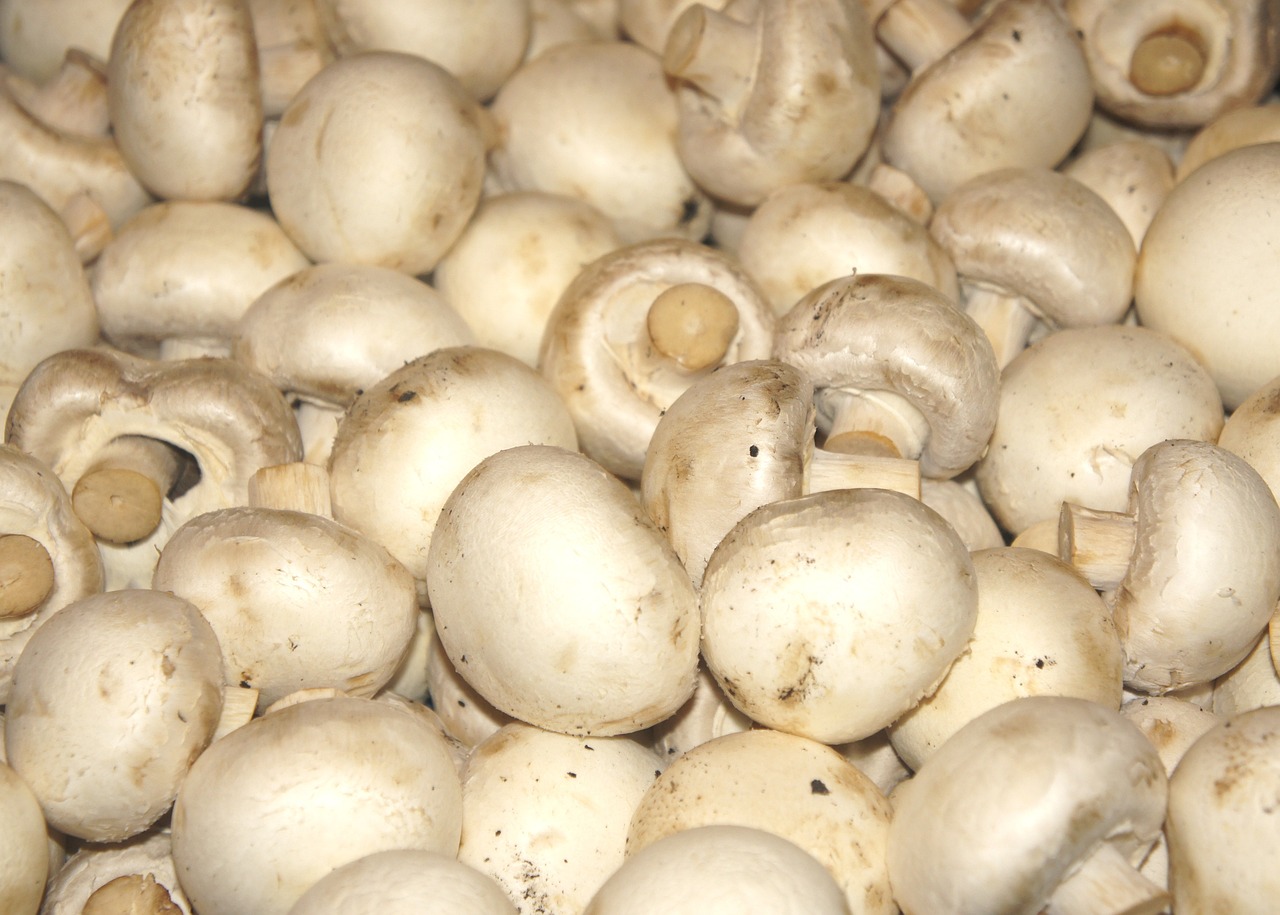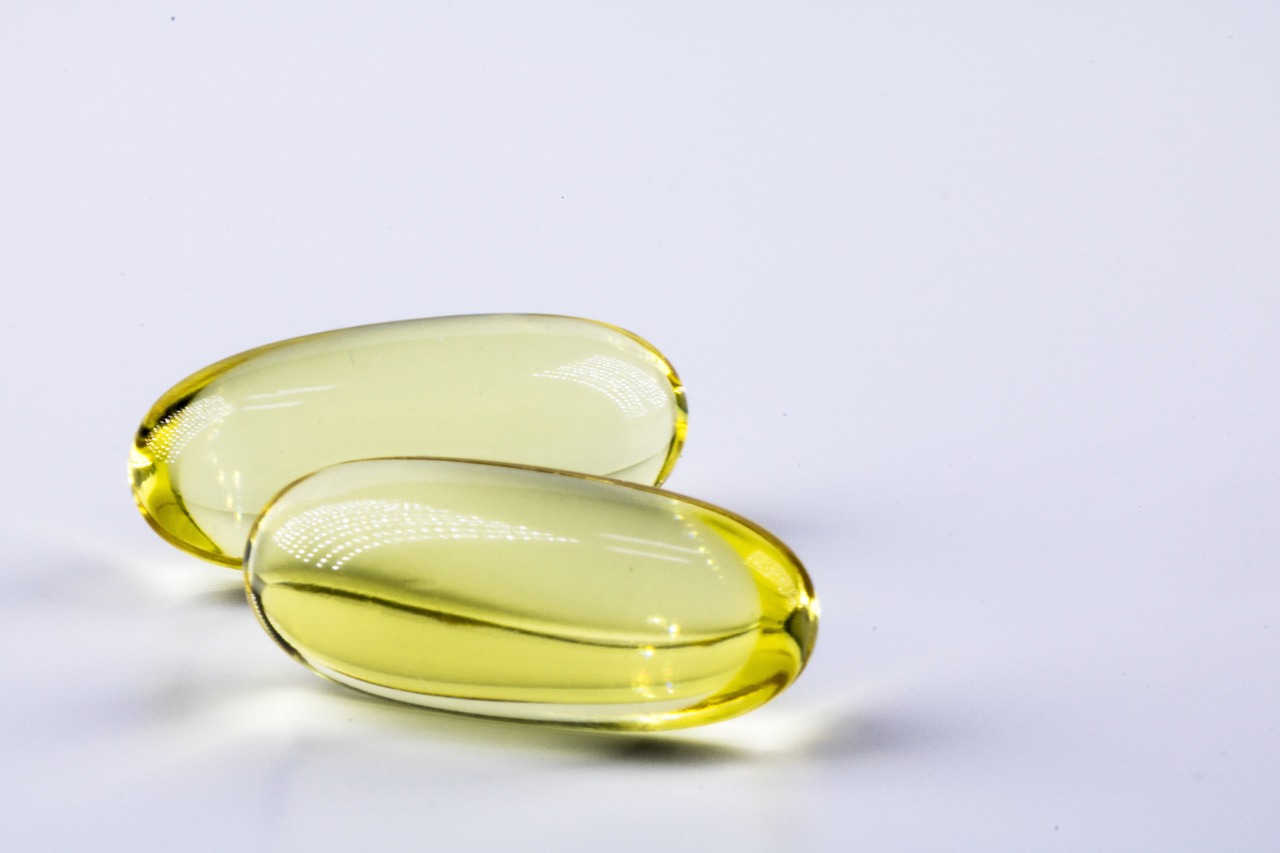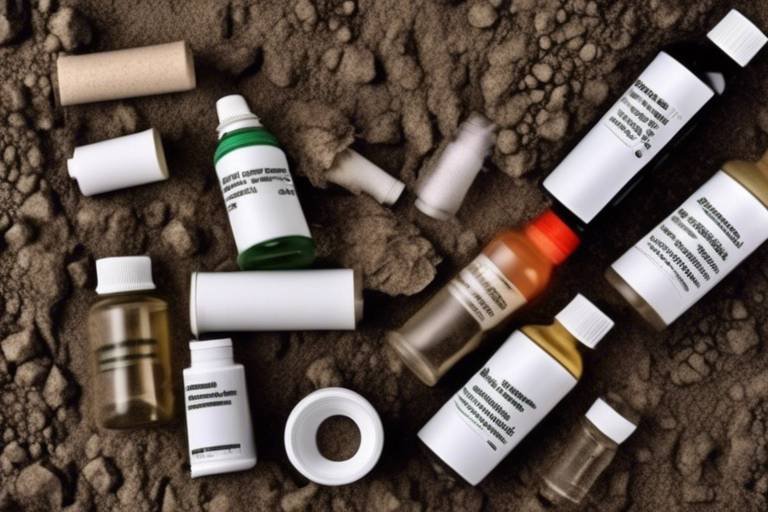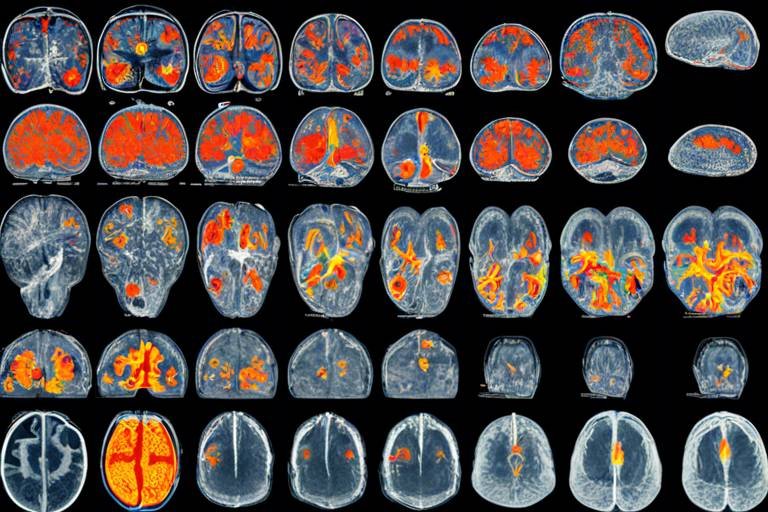Breakthroughs in Understanding Gut Health and Disease
In recent years, our understanding of gut health has undergone a remarkable transformation, akin to discovering a hidden treasure trove of knowledge that was always right under our noses. The gut microbiome, a complex community of trillions of microorganisms residing in our intestines, is now recognized as a critical player in our overall health. This article delves into the latest advancements in gut health research, illuminating the intricate relationship between gut microbiota and various diseases, while also exploring the implications these findings hold for future healthcare practices.
The gut microbiome is not just a passive observer; it actively engages with our body, influencing everything from digestion to immune function and even mental health. Imagine your gut as a bustling city, where each microorganism plays a unique role, contributing to the overall harmony and function of the metropolis. Recent studies have revealed that imbalances in this microbial community can lead to a host of health issues, including obesity, diabetes, and autoimmune diseases. This newfound knowledge has sparked a wave of interest in gut health, prompting researchers and healthcare professionals to rethink traditional approaches to disease prevention and treatment.
One of the most exciting areas of research focuses on the potential of microbiota-based therapies. By manipulating the gut microbiome through probiotics, prebiotics, and dietary changes, scientists are uncovering innovative ways to combat diseases that were once thought to be untreatable. For instance, the use of specific probiotic strains has shown promise in alleviating symptoms of irritable bowel syndrome (IBS) and inflammatory bowel diseases (IBD). This approach is akin to fine-tuning an orchestra; by adjusting the balance of microbial populations, we can achieve a more harmonious state of health.
Moreover, the implications of gut health extend beyond the physical realm. The gut-brain axis, a fascinating communication network between the gut and the brain, highlights how our gut microbiota can influence our mood and mental well-being. Imagine your gut as a messenger, sending signals to your brain that can affect your emotions and cognitive functions. Research has linked gut dysbiosis—an imbalance in the gut microbiome—to conditions such as anxiety and depression, paving the way for new therapeutic strategies that target gut health as a means of improving mental health outcomes.
As we continue to uncover the mysteries of the gut microbiome, it becomes increasingly clear that maintaining gut health is not merely a matter of avoiding gastrointestinal issues; it is a cornerstone of overall well-being. The future of healthcare may very well hinge on our ability to harness the power of the gut microbiome, leading to personalized medicine approaches that take into account an individual's unique microbial composition. By prioritizing gut health, we may unlock new pathways to prevent and treat a myriad of diseases, ultimately revolutionizing the way we approach health and wellness.
- What is the gut microbiome?
The gut microbiome is a diverse community of microorganisms, including bacteria, viruses, fungi, and other microbes, that reside in our digestive tract and play a crucial role in our health.
- How does gut health affect the immune system?
A healthy gut microbiome supports the immune system by regulating immune responses and protecting against pathogens.
- What are probiotics and prebiotics?
Probiotics are live beneficial bacteria, while prebiotics are types of dietary fiber that feed these beneficial bacteria, promoting a healthy gut environment.
- Can gut health influence mental health?
Yes, the gut-brain axis suggests that the gut microbiome can impact mood and behavior, linking gut health to mental health conditions.
- What dietary changes can improve gut health?
Incorporating fiber-rich foods, fermented foods, and reducing processed foods can significantly enhance gut health.

The Gut Microbiome: An Overview
Understanding the gut microbiome is essential for recognizing its role in health and disease. The gut microbiome is a complex community of trillions of microorganisms, including bacteria, viruses, fungi, and other microbes, residing in our intestines. These tiny inhabitants are not just passive bystanders; they actively participate in numerous bodily functions, making them crucial for our overall health.
Imagine your gut as a bustling city, where each microbe plays a specific role in maintaining the balance and functionality of this vibrant ecosystem. Just like a city needs a variety of services—police, fire department, and hospitals—your gut requires a diverse range of microorganisms to thrive. This diversity is what keeps our immune system robust, our metabolism in check, and our mood stable.
The gut microbiome performs several vital functions, including:
- Digesting food: Certain bacteria help break down complex carbohydrates and fibers that our bodies cannot digest on their own.
- Producing vitamins: Microbes synthesize essential vitamins, such as vitamin K and some B vitamins, which are crucial for various bodily functions.
- Regulating the immune system: The gut microbiome plays a pivotal role in training our immune system to distinguish between harmful pathogens and benign substances.
Moreover, the gut microbiome interacts intricately with our body. It communicates with our brain, influences our metabolism, and even affects our mood. This communication occurs through various pathways, including the production of metabolites that can enter the bloodstream and signal different organs. For example, certain gut bacteria produce short-chain fatty acids (SCFAs) during the fermentation of dietary fibers, which can have anti-inflammatory effects and promote gut health.
However, the composition of the gut microbiome is not static; it can be influenced by numerous factors, including diet, lifestyle, age, and even the environment. A diet rich in fiber and fermented foods can enhance microbial diversity, while a diet high in processed foods can lead to dysbiosis, an imbalance that may contribute to various health issues.
In summary, the gut microbiome is a dynamic and essential component of our health. Understanding its composition and functions can lead to better insights into how we can maintain optimal gut health and prevent diseases. As research continues to evolve, we are likely to uncover even more fascinating connections between our gut microbiota and overall well-being.

Gut Health and Immune Function
The gut microbiome is a bustling community of microorganisms that plays a crucial role in our overall health, especially when it comes to our immune system. Imagine your gut as a vibrant city, where billions of tiny citizens work tirelessly to keep everything running smoothly. These microorganisms, including bacteria, viruses, and fungi, are not just passive residents; they actively interact with our body, influencing various biological processes. Research has shown that a healthy gut microbiome can bolster immune responses, making it essential for defending against infections and diseases.
One of the most fascinating aspects of the gut microbiome is its ability to communicate with the immune system. This communication occurs through various mechanisms, including the production of short-chain fatty acids (SCFAs), which are byproducts of fiber fermentation by gut bacteria. SCFAs have been shown to enhance the function of immune cells, thereby improving our body’s ability to fight off pathogens. Furthermore, a diverse microbiome is often associated with a stronger immune response, acting like a well-trained army ready to tackle any invader that threatens our health.
But what happens when our gut health is compromised? An imbalance in the gut microbiome, often caused by poor diet, stress, or antibiotic use, can lead to a weakened immune system. This condition, known as dysbiosis, can result in increased susceptibility to infections and even contribute to the development of autoimmune diseases. It’s as if the city is under siege, with the citizens unable to defend themselves effectively against external threats. Therefore, maintaining a healthy gut microbiome is not just important for digestive health; it is vital for a robust immune function.
One exciting area of research is the potential for microbiota-based therapies to treat autoimmune diseases. By restoring balance to the gut microbiome, scientists believe we may be able to modulate the immune response and alleviate symptoms associated with conditions like rheumatoid arthritis and multiple sclerosis. This approach could revolutionize how we think about treating these diseases, shifting the focus from merely managing symptoms to addressing the root cause.
To support a healthy gut and immune system, incorporating probiotics and prebiotics into your diet is essential. Probiotics, the beneficial bacteria found in fermented foods like yogurt and kimchi, can help replenish the gut microbiome, while prebiotics, found in foods such as garlic, onions, and bananas, serve as food for these beneficial bacteria. Together, they form a dynamic duo that promotes gut health and, in turn, supports immune function.
In summary, the connection between gut health and immune function is undeniable. A thriving gut microbiome acts as a frontline defense against diseases, while an imbalanced microbiome can leave us vulnerable. By prioritizing gut health through a balanced diet rich in probiotics and prebiotics, we can fortify our immune system, paving the way for a healthier life. So, the next time you think about your health, remember that a happy gut is a happy immune system!
- How does gut health affect immune function? A healthy gut microbiome enhances immune responses, helping the body defend against infections and diseases.
- What are probiotics and prebiotics? Probiotics are beneficial bacteria found in fermented foods, while prebiotics are dietary fibers that feed these bacteria.
- Can diet influence gut health? Yes, a diet rich in fiber, probiotics, and low in processed foods can promote a healthy gut microbiome.
- What is dysbiosis? Dysbiosis is an imbalance in the gut microbiome that can lead to health issues, including weakened immune responses.

Probiotics and Prebiotics
When it comes to maintaining a healthy gut, probiotics and prebiotics are two terms that often pop up in conversations about nutrition and wellness. But what exactly are they, and why are they so crucial for our digestive health? Let's dive into the fascinating world of these gut heroes!
Probiotics are live microorganisms, often referred to as "good" bacteria, that provide numerous health benefits when consumed in adequate amounts. They help balance the gut microbiome by promoting the growth of beneficial bacteria while inhibiting harmful ones. Think of them as the friendly neighborhood defenders of your gut, working tirelessly to ensure that your digestive system operates smoothly. Common sources of probiotics include fermented foods like yogurt, kefir, sauerkraut, and kimchi. These foods are not only delicious but also packed with the goodness your gut craves.
On the other hand, prebiotics are a type of dietary fiber that serves as food for these beneficial bacteria. They are non-digestible components found in certain foods that stimulate the growth and activity of probiotics. Imagine prebiotics as the fuel that powers your gut's good bacteria, allowing them to thrive and perform their essential functions. Foods rich in prebiotics include bananas, onions, garlic, asparagus, and whole grains. Incorporating these foods into your diet can significantly enhance your gut health.
But how do we ensure we are getting enough of both probiotics and prebiotics? A balanced diet is key! Here are some tips to help you integrate them into your meals:
- Start your day with yogurt: A bowl of yogurt topped with fruits and nuts can be a delicious breakfast packed with probiotics.
- Add garlic and onions: These flavorful ingredients can be easily included in salads, soups, and stir-fries, providing a boost of prebiotics.
- Snack on bananas: Instead of reaching for processed snacks, grab a banana to nourish your gut with prebiotic fiber.
Research has shown that a diet rich in both probiotics and prebiotics can lead to improved digestion, enhanced immune function, and even better mental health. This synergy between the two is what makes them so powerful. For instance, studies have indicated that probiotics can help alleviate symptoms of irritable bowel syndrome (IBS), while prebiotics can enhance the effectiveness of probiotics, making them even more beneficial.
In summary, incorporating a variety of probiotic and prebiotic-rich foods into your diet can significantly improve your gut health. They work hand-in-hand to create a flourishing environment for beneficial bacteria, which in turn supports your overall well-being. So, why not start today? Your gut will thank you!
Q: Can I take probiotic supplements instead of getting them from food?
A: Yes, probiotic supplements can be beneficial, especially if you have specific health concerns. However, it’s always best to consult with a healthcare professional before starting any new supplement regimen.
Q: How long does it take to see the benefits of probiotics and prebiotics?
A: The timeline can vary from person to person, but many individuals report noticing improvements in digestion and overall gut health within a few weeks of regular consumption.
Q: Are there any side effects associated with probiotics?
A: While probiotics are generally safe for most people, some may experience mild digestive discomfort initially. It's advisable to start with smaller doses and gradually increase as your body adjusts.

Types of Probiotics
When it comes to probiotics, the diversity is as vast as the ocean! These tiny organisms play a significant role in maintaining our gut health, but not all probiotics are created equal. There are various strains of probiotics, each with its unique benefits and characteristics. Understanding these differences is crucial for selecting the right type of probiotic to support your health needs.
To start with, probiotics can be broadly categorized into two main groups: Lactobacillus and Bifidobacterium.
| Probiotic Strain | Benefits |
|---|---|
| Lactobacillus | Helps with lactose digestion, reduces diarrhea, and boosts the immune system. |
| Bifidobacterium | Supports gut health, alleviates constipation, and may help prevent infections. |
Within these groups, there are numerous strains, each offering specific health benefits. For instance, Lactobacillus rhamnosus is renowned for its ability to prevent and treat diarrhea, especially in children. On the other hand, Bifidobacterium longum is known for its potential to enhance gut barrier function and reduce inflammation.
But wait, there's more! Other notable strains include:
- Lactobacillus acidophilus: Commonly found in yogurt, this strain is excellent for promoting a healthy balance of gut bacteria.
- Streptococcus thermophilus: Often used in the fermentation of dairy products, it can help improve lactose digestion.
- Saccharomyces boulardii: A beneficial yeast that can combat diarrhea and support gut health.
As you can see, the world of probiotics is rich and varied. Choosing the right strain can be likened to picking the perfect tool for a job; each one has its specific function and can lead to significantly different outcomes. Whether you're looking to enhance your digestive health, boost your immune system, or even improve your mood, there’s likely a probiotic strain that can help you achieve your health goals.
As research continues to evolve, we are discovering even more about how these tiny organisms interact with our bodies. The future of probiotics is bright, and understanding the different types available can empower you to make informed choices about your gut health.

Prebiotic Foods
Prebiotic foods are essential for maintaining a healthy gut microbiome. These foods serve as the **fuel** for beneficial bacteria, promoting their growth and activity within the digestive system. You might be wondering, what exactly are prebiotics? Simply put, they are non-digestible fibers and compounds that beneficial gut bacteria thrive on. By incorporating prebiotic-rich foods into your diet, you can support the balance of your gut microbiota, which can lead to improved digestion, enhanced immune function, and even better mental health.
Some of the most effective prebiotic foods include:
- Garlic: This flavorful bulb is not only a staple in many cuisines but also a powerhouse of prebiotics. It contains inulin, a type of fiber that beneficial bacteria love.
- Onions: Similar to garlic, onions are rich in inulin and other prebiotic fibers. They can be enjoyed raw in salads or cooked in various dishes.
- Bananas: Particularly when they are slightly green, bananas are a great source of resistant starch, which acts as a prebiotic.
- Asparagus: This vegetable is not just delicious; it's also packed with inulin, making it a fantastic addition to your meals.
- Chicory Root: Often used as a coffee substitute, chicory root is one of the richest sources of inulin, providing a significant boost to your gut health.
- Oats: Rich in beta-glucans, oats can enhance the growth of beneficial bacteria, making them a perfect breakfast choice.
Including these foods in your diet can be as simple as adding sliced bananas to your morning cereal, tossing garlic into your stir-fry, or enjoying a hearty onion soup. The key is to **diversify** your intake of prebiotic foods to ensure that you're feeding a wide range of beneficial bacteria. This diversity can lead to a more resilient gut microbiome, which is crucial for overall health.
Moreover, the benefits of prebiotics extend beyond gut health. Research has shown that a healthy gut microbiome can influence **mood**, **weight management**, and even the risk of chronic diseases. So, by incorporating prebiotic foods into your diet, you're not just nurturing your gut; you're also taking a proactive step towards enhancing your overall well-being.
In conclusion, prebiotic foods are a vital component of a healthy diet. They play a crucial role in maintaining the balance of your gut microbiome, which is essential for optimal health. By making a conscious effort to include a variety of prebiotic-rich foods in your meals, you can support your gut health and, ultimately, your overall health.
Q: What are prebiotics?
A: Prebiotics are non-digestible fibers that feed beneficial gut bacteria, promoting their growth and activity.
Q: How do prebiotics benefit gut health?
A: Prebiotics help maintain a healthy balance of gut microbiota, which can improve digestion, enhance immune function, and support mental health.
Q: Can I get prebiotics from supplements?
A: While supplements are available, it's best to obtain prebiotics from whole foods for maximum health benefits.
Q: How can I incorporate more prebiotic foods into my diet?
A: You can easily add prebiotic foods like garlic, onions, bananas, and oats to your meals, enhancing both flavor and health.

Gut-Brain Axis
The is a fascinating and complex communication network that links the gut and the brain, highlighting how our digestive system can affect our mental health. Imagine your gut as a second brain, constantly sending and receiving signals that can influence your mood, behavior, and even cognitive functions. This bidirectional communication occurs through various pathways, including the vagus nerve, hormones, and immune system mediators. It's like a symphony where each part plays a crucial role in creating harmony between our physical and mental states.
Recent studies have shown that the gut microbiota—the trillions of microorganisms residing in our intestines—plays a pivotal role in this connection. These microbes produce neurotransmitters and other metabolites that can affect brain function. For example, did you know that about 90% of serotonin, a key neurotransmitter that stabilizes mood, is produced in the gut? This discovery sheds light on why gut health is so vital for overall well-being.
Furthermore, the gut-brain axis can also explain the phenomenon of gut feelings. You know those times when you feel anxious or stressed, and you get that uneasy feeling in your stomach? This is your gut communicating with your brain. Stress can lead to changes in gut microbiota composition, potentially resulting in gastrointestinal disorders such as irritable bowel syndrome (IBS). This connection underscores the importance of maintaining a healthy gut to support not only physical health but also mental clarity and emotional stability.
To better understand the implications of the gut-brain axis, consider the following key points:
- Microbiota Influence: Different strains of gut bacteria can produce various neurotransmitters, which can influence mood and behavior.
- Dietary Impact: Foods rich in fiber and probiotics can enhance gut health and, consequently, support mental well-being.
- Stress Response: Chronic stress can disrupt the gut microbiome, leading to a vicious cycle of poor gut health and mental distress.
As research continues to unfold, the potential for microbiota-based therapies to treat mental health disorders is becoming increasingly promising. Imagine a future where we could use specific probiotics to alleviate anxiety or depression, much like we use medications today. This could revolutionize how we approach mental health treatment, focusing on the gut as a foundational element of emotional and psychological well-being.
In conclusion, the gut-brain axis is a remarkable reminder of the interconnectedness of our body systems. By nurturing our gut health through a balanced diet and lifestyle choices, we can support not only our physical health but also our mental resilience. As we continue to explore this intricate relationship, one thing is clear: taking care of our gut is essential for thriving in both mind and body.
Q: What is the gut-brain axis?
A: The gut-brain axis is a communication network that links the gut and the brain, influencing mood, behavior, and cognitive functions.
Q: How does gut health affect mental health?
A: A healthy gut microbiome can produce neurotransmitters that positively impact mood and emotional well-being, while an unhealthy gut can lead to mental distress.
Q: What role do probiotics play in the gut-brain axis?
A: Probiotics can help maintain a healthy gut microbiome, potentially improving mood and reducing anxiety through their effects on gut health.
Q: Can diet influence the gut-brain axis?
A: Yes, a diet rich in fiber and probiotics can promote a healthy gut microbiome, supporting both gut and mental health.
Q: What are some signs of an unhealthy gut?
A: Symptoms may include digestive issues, fatigue, mood swings, and even skin problems, indicating a need for improved gut health.

Dietary Impacts on Gut Health
When it comes to our health, the old saying "you are what you eat" couldn't be more accurate, especially concerning gut health. The gut microbiome, a bustling community of trillions of microorganisms, is profoundly influenced by what we consume. It's fascinating to think that our dietary choices can either nourish these beneficial bacteria or contribute to their decline. Imagine your gut as a garden; if you feed it the right nutrients, it flourishes, but if you neglect it or fill it with junk, it becomes overrun with weeds. This section will delve into how various dietary patterns can shape the gut microbiome and the implications for our health.
Research shows that a balanced diet rich in whole foods can significantly enhance gut health. Foods high in fiber, such as fruits, vegetables, whole grains, and legumes, serve as prebiotics, feeding the good bacteria in our gut. These beneficial bacteria, in turn, produce short-chain fatty acids (SCFAs) that are crucial for maintaining the integrity of the gut lining and reducing inflammation. On the contrary, diets low in fiber and high in processed foods can lead to a decrease in microbial diversity, which is linked to various gut-related diseases.
To illustrate the impact of different diets on gut health, consider the following table:
| Diet Type | Impact on Gut Health |
|---|---|
| High-Fiber Diet | Promotes beneficial bacteria, enhances SCFA production, reduces inflammation. |
| Western Diet (High in Processed Foods) | Decreases microbial diversity, increases inflammation, linked to obesity and metabolic disorders. |
| Fermented Foods Diet | Introduces probiotics, enhances gut flora diversity, improves digestion. |
Moreover, the impact of processed foods on gut health cannot be overlooked. These foods often contain additives, preservatives, and artificial sweeteners, which can disrupt the delicate balance of the gut microbiome. Think of processed foods as a double-edged sword; while they may offer convenience, they often come at the cost of our gut health. Studies have shown that high consumption of these foods correlates with an increase in gut permeability, commonly referred to as "leaky gut," which can lead to a host of health issues, including autoimmune diseases.
Another critical aspect of dietary impacts on gut health is the consumption of fermented foods. These foods, such as yogurt, kefir, sauerkraut, and kimchi, are packed with probiotics, which are live bacteria that can confer health benefits. Integrating fermented foods into your diet can help restore and maintain a healthy gut microbiome. It's like adding a dose of good bacteria to your garden, helping it thrive even more.
In conclusion, the link between diet and gut health is undeniable. By making informed dietary choices, we can cultivate a thriving gut microbiome that supports not only digestive health but also overall well-being. So, the next time you're at the grocery store, consider your gut's needs. Are you feeding it the nutrients it craves, or are you neglecting it with processed foods? Your gut will thank you for choosing wisely!
- What foods are best for gut health? Foods high in fiber, fermented foods, and whole grains are excellent for gut health.
- How does a high-sugar diet affect gut health? A high-sugar diet can promote the growth of harmful bacteria and reduce microbial diversity.
- Can I improve my gut health quickly? While some improvements can be seen quickly with dietary changes, sustainable gut health requires long-term commitment to healthy eating.

Fiber-Rich Diets
When it comes to maintaining a healthy gut, are the unsung heroes. Think of fiber as the superhero your gut needs to stay strong and vibrant. It acts as food for the beneficial bacteria residing in your intestines, helping them thrive and multiply. But what exactly makes fiber so essential? Well, fiber comes in two forms: soluble and insoluble, each playing a unique role in gut health. Soluble fiber, found in foods like oats, beans, and apples, dissolves in water, forming a gel-like substance that helps slow digestion and stabilize blood sugar levels. On the other hand, insoluble fiber, abundant in whole grains and vegetables, adds bulk to your stool and promotes regular bowel movements, making it a key player in preventing constipation.
But wait, there's more! A diet high in fiber doesn't just keep your gut running smoothly; it also has a ripple effect on your overall health. Numerous studies have shown that individuals consuming a fiber-rich diet experience lower risks of developing various gastrointestinal disorders, including diverticulitis and colorectal cancer. Plus, fiber helps you feel full longer, which can be a game-changer for those looking to manage their weight. Imagine fiber as a gentle cushion that fills your stomach, preventing those pesky hunger pangs from creeping in too soon.
So, how can you get more fiber into your diet? It's easier than you might think! Here are some delicious options to consider:
- Whole grains like quinoa, brown rice, and whole wheat bread
- Fruits such as berries, bananas, and pears
- Vegetables including broccoli, carrots, and sweet potatoes
- Legumes like lentils, chickpeas, and black beans
Incorporating these foods into your daily meals can be as simple as adding a handful of berries to your morning yogurt or swapping white rice for brown rice in your favorite stir-fry. The key is to gradually increase your fiber intake to avoid any digestive discomfort, allowing your gut to adjust to the change. And remember to drink plenty of water, as fiber works best when it absorbs liquid, helping to keep things moving smoothly.
In summary, a fiber-rich diet is not just beneficial; it's essential for a healthy gut and overall well-being. By prioritizing fiber in your meals, you’re not just feeding your body; you’re nurturing the amazing community of microorganisms that play a crucial role in your health. So why not start today? Your gut will thank you!
1. What are the benefits of a fiber-rich diet?
A fiber-rich diet can improve digestion, prevent constipation, lower the risk of certain diseases, and help with weight management by promoting a feeling of fullness.
2. How much fiber should I consume daily?
The recommended daily intake of fiber is about 25 grams for women and 38 grams for men. However, individual needs may vary based on age, activity level, and overall health.
3. Can I get too much fiber?
Yes, consuming excessive fiber without adequate hydration can lead to digestive issues such as bloating and gas. It's important to increase fiber intake gradually and drink plenty of water.
4. Are fiber supplements effective?
While fiber supplements can help increase your intake, it's best to get fiber from whole foods, which provide additional nutrients and health benefits.

Processed Foods and Gut Health
Processed foods have become a staple in many diets around the world, but their impact on gut health is a growing concern. These foods, often laden with additives, preservatives, and artificial ingredients, can disrupt the delicate balance of our gut microbiome. Imagine your gut as a vibrant city, bustling with diverse communities of beneficial bacteria. Now, picture processed foods as a destructive force, causing chaos and disarray among these communities. The result? An imbalance that can lead to various health issues.
One of the main culprits in processed foods is added sugars, which can promote the growth of harmful bacteria while suppressing beneficial ones. A diet high in sugar can create an environment where pathogenic bacteria thrive, leading to conditions such as obesity, diabetes, and even inflammatory bowel disease. Furthermore, the high levels of unhealthy fats and refined carbohydrates found in many processed foods can contribute to increased gut permeability, often referred to as "leaky gut." This condition allows toxins and undigested food particles to enter the bloodstream, triggering inflammation and immune responses that can wreak havoc on overall health.
Additionally, many processed foods contain emulsifiers and artificial sweeteners, which have been shown to alter gut microbiota composition. For instance, studies have indicated that certain emulsifiers can promote the growth of pathogenic bacteria while reducing the diversity of beneficial species. This alteration can lead to a myriad of health problems, including metabolic syndrome and gastrointestinal disorders. To illustrate the stark contrast between whole foods and processed options, consider the following table:
| Whole Foods | Processed Foods |
|---|---|
| Rich in nutrients | High in additives |
| Promotes beneficial bacteria | Encourages harmful bacteria |
| Supports gut health | Can lead to gut dysbiosis |
| Natural fiber source | Often low in fiber |
So, what can you do to safeguard your gut health? The key lies in making conscious dietary choices. Opt for whole, unprocessed foods as much as possible. Think of your gut as a garden; it flourishes when nurtured with wholesome, organic produce, lean proteins, and healthy fats. Incorporating a variety of fruits, vegetables, whole grains, and fermented foods into your diet can help restore balance to your gut microbiome.
In conclusion, while processed foods may offer convenience, the potential consequences on gut health are significant. By being mindful of what we consume and prioritizing whole foods, we can foster a thriving gut microbiome that supports our overall health and well-being. Remember, every bite counts in the journey toward optimal gut health!
- What are processed foods? Processed foods are those that have been altered from their natural state through methods such as canning, freezing, or adding preservatives and flavorings.
- How do processed foods affect gut health? They can disrupt the balance of gut bacteria, promote the growth of harmful bacteria, and lead to conditions like leaky gut.
- What are some examples of whole foods? Whole foods include fruits, vegetables, nuts, seeds, whole grains, and lean proteins that are minimally processed.
- Can I still enjoy processed foods? Moderation is key. It's best to limit processed foods and focus on a diet rich in whole foods for better gut health.

Future Directions in Gut Health Research
The field of gut health research is evolving at an astonishing pace, with scientists uncovering new insights that could revolutionize our understanding of the microbiome and its impact on overall health. As we look to the future, several key areas of research are emerging that promise to shed light on the complexities of gut health. For instance, researchers are increasingly focused on the role of the gut microbiome in chronic diseases, such as diabetes and obesity. These conditions are often linked to an imbalance in gut bacteria, and understanding this relationship could lead to innovative treatment options.
One exciting avenue of research is the exploration of personalized nutrition. Just as no two people are alike, the composition of gut microbiota varies greatly among individuals. By analyzing a person's unique microbiome, scientists hope to develop tailored dietary recommendations that optimize gut health. Imagine a future where your diet is specifically designed to enhance your gut flora, improving not just digestion but overall well-being!
Another promising direction involves the study of fecal microbiota transplantation (FMT). This technique, which involves transferring stool from a healthy donor to a patient, has shown potential in treating conditions like Clostridium difficile infection. However, researchers are now investigating its broader applications, including its effects on mental health and autoimmune diseases. The implications are profound: could a simple stool transplant hold the key to treating complex conditions?
Furthermore, the development of advanced technologies, such as metagenomic sequencing, is enabling scientists to analyze gut microbiota with unprecedented accuracy. This technology allows for the identification of specific bacterial strains and their functions, paving the way for targeted therapies. For example, if researchers can pinpoint which bacteria are beneficial for gut health, they might be able to create specific probiotics that deliver those strains directly to the gut.
As we delve deeper into the gut-brain axis, the connection between gut health and mental health is becoming increasingly clear. Future studies aim to explore how gut microbiota influence neurotransmitter production and mood regulation. This could lead to groundbreaking treatments for mental health disorders, offering a holistic approach that considers both physical and mental well-being.
In conclusion, the future of gut health research is bright and full of potential. With advancements in technology and a growing understanding of the microbiome's role in various diseases, we are on the brink of significant breakthroughs. As we continue to explore these avenues, the hope is to develop new strategies that not only enhance gut health but also improve our quality of life.
- What is the gut microbiome?
The gut microbiome refers to the community of microorganisms living in the digestive tracts of humans and other animals, playing a crucial role in health and disease. - How does diet affect gut health?
Diet significantly influences the composition and diversity of the gut microbiome, affecting overall health and the risk of diseases. - What are probiotics and prebiotics?
Probiotics are live beneficial bacteria, while prebiotics are non-digestible food ingredients that promote the growth of beneficial bacteria in the gut. - Can gut health impact mental health?
Yes, research suggests a strong connection between gut health and mental health, often referred to as the gut-brain axis.
Frequently Asked Questions
- What is the gut microbiome?
The gut microbiome is a complex community of trillions of microorganisms, including bacteria, viruses, fungi, and other microbes, that reside in our digestive tract. These tiny organisms play a crucial role in our overall health, influencing everything from digestion and metabolism to immune function and even mental health.
- How does gut health affect the immune system?
Gut health is closely linked to the immune system. A balanced gut microbiome helps regulate immune responses, making it easier for the body to fend off infections and diseases. When the gut is out of balance, it can lead to inflammation and increased susceptibility to autoimmune diseases.
- What are probiotics and prebiotics?
Probiotics are live beneficial bacteria that can improve gut health when consumed. They can be found in fermented foods like yogurt, kefir, and sauerkraut. Prebiotics, on the other hand, are non-digestible fibers that feed the good bacteria in your gut. Foods high in prebiotics include garlic, onions, bananas, and asparagus.
- Can gut health impact my mood?
Absolutely! The gut-brain axis is a fascinating connection between your gut and your brain. Research suggests that the gut microbiota can influence neurotransmitter production, which affects mood and behavior. A healthy gut can lead to improved mental well-being.
- What dietary changes can I make to improve gut health?
To enhance your gut health, focus on a diet rich in fiber, fruits, vegetables, and fermented foods. Avoid processed foods high in sugar and additives, as they can disrupt the gut microbiome. Incorporating a variety of foods can help maintain a diverse and healthy gut flora.
- What role does fiber play in gut health?
Fiber is essential for gut health because it acts as food for beneficial gut bacteria. A fiber-rich diet promotes the growth of these bacteria, which can help prevent gastrointestinal disorders and improve overall digestive health.
- How can I know if my gut health is compromised?
Signs of compromised gut health can include digestive issues like bloating, gas, constipation, or diarrhea. Other symptoms might be fatigue, skin irritations, or frequent infections. If you experience these symptoms, it may be time to assess your gut health and consider dietary changes or consult a healthcare professional.
- What are some future directions in gut health research?
Future research in gut health aims to uncover more about the intricate relationships between gut microbiota and various diseases. This includes exploring microbiota-based therapies, personalized nutrition based on individual microbiomes, and the potential for probiotics and prebiotics to prevent or treat specific health conditions.



















